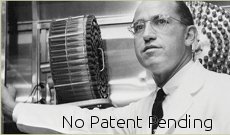I have horrible handwriting and I'm not ashamed of it. It's ugly and barely legible. In my family, I have the worst handwriting. But still, with enough effort, and guessing, you can read what I am trying to say.
However In the same family, I pose as the computer expert. At a very young age, I started relying on the computer almost entirely for writing. I've forsaken the pen in favor of the keyboard. Not because I type fast, but because the text produced by the computer is legible by everyone, not just the people with whom I share a roof.
In the 90s, computers were popular, but not owned by everyone. The medium of exposing your writing was in the International standard A4, or simply put white paper. This was convenient, because we didn't expect people to have access to a machine, email, or Microsoft Word to read our work. Print it on white paper and everyone can read it.
In the 2000s, the computer was even more popular, and in addition almost everyone had access to it. You could send an email and have a guarantee that the recipient will read it. In school I wrote less and less with a pen, I could just type my essays and email it to the teacher. But there was now a new problem that slowly started to creep in. As technology evolved, so did software diversity. What format should I send my homework in for the teacher to be able to open it?
Software was fragmenting. Each word processor had its own unique convoluted format. Not everyone had Microsoft Word installed on their machine, and it was a burden to require people to have a specific paid application in order to open your work.
With all the features available in Rich Text editors people started using stuff that didn't port well between applications. Sometimes I would write something using Open Office (because it was free) and save it as a doc file (Microsoft's proprietary format), only to have the recipient tell me that they received gibberish.
Some companies warned candidates not to send their resume in PDF, and threatened an automatic disqualification. We all had computers yet we were now locked in a format war.

In the 2010s, we became addicted to mobile devices. Many of my blog posts written here are constructed entirely from a mobile device, because I forget a lot. Yet the format war is still going on. I have trouble using specific apps to share my writing between my phone and the home computer.
I had to settle for the simplest format available on the computer. I gave up on features in favor of compatibility. I write .txt files on my phone, saved on the "cloud", and open it on any other device without requiring special proprietary software. I can now write things using gedit, textmate, vim, nano, and at the end I can still share it seamlessly.
Text files are the rawest data type for text. Sharing it among different text editors feels like writing with ink on paper, with the advantage of copy and paste. Everyone has a slightly different style but we can still read it. We have ink on paper text from centuries ago. In fact, we have text dating millennia. The reason I can pick up a copy of Gilgamesh today is because the author didn't save the words in a PSD format. Imagine if the hieroglyphs were written in a PSD format. We would never decipher them, the same way no one person can decipher a PSD today.
PSD is not a good format. PSD is not even a bad format. Calling it such would be an insult to other bad formats, such as PCX or JPEG. No PSD is an abysmal format.
When a format dies, so does it's content. If we still have books written from centuries, or millennia today, it's because they didn't use a proprietary format.
I recently started to study raw formats like like bit maps, PNGs, or JPEGS and there is a chance we can recover bitmaps very far in the future. A hundred years from now there is a chance that we will be able to read text files, but that's if we still have a trace of binary and ASCII. These are simple format that can be reverse engineered, if we have access to a binary computer. But those who are application specific will be much harder to recover.
Everyday data centers are collecting more and more data from all over the web and saving them in their appropriate format for a chance to archive them forever. a few hundred years from now, every single one of these formats will be obsolete. Trying to read them will produce gibberish, or will seem like a stream of corrupted data.
One solution could be to update them over time. Converting them to the newest format of the time. But what happens when we find old data that hasn't been updated. We will have to toss it away to save space for something that makes sense.
You certainly won't find yourself in an old attic looking through old books left by your ancestors. Instead you will find an iPad. You won't be able to turn it on because the battery is depleted and no one will be selling lightning cables. This iPad will contain the deepest thoughts, or selfies, of your ancestors never to be seen again. It will be locked in a proprietary format from a company that long disappeared when mobile devices became obsolete.
In the far future, a student will be working on an expose, to tell the story of the annual Bic Holiday. Celebrated in every little corners of the world. It will celebrate the day Bic sold its very last pen.





Comments
There are no comments added yet.
Let's hear your thoughts